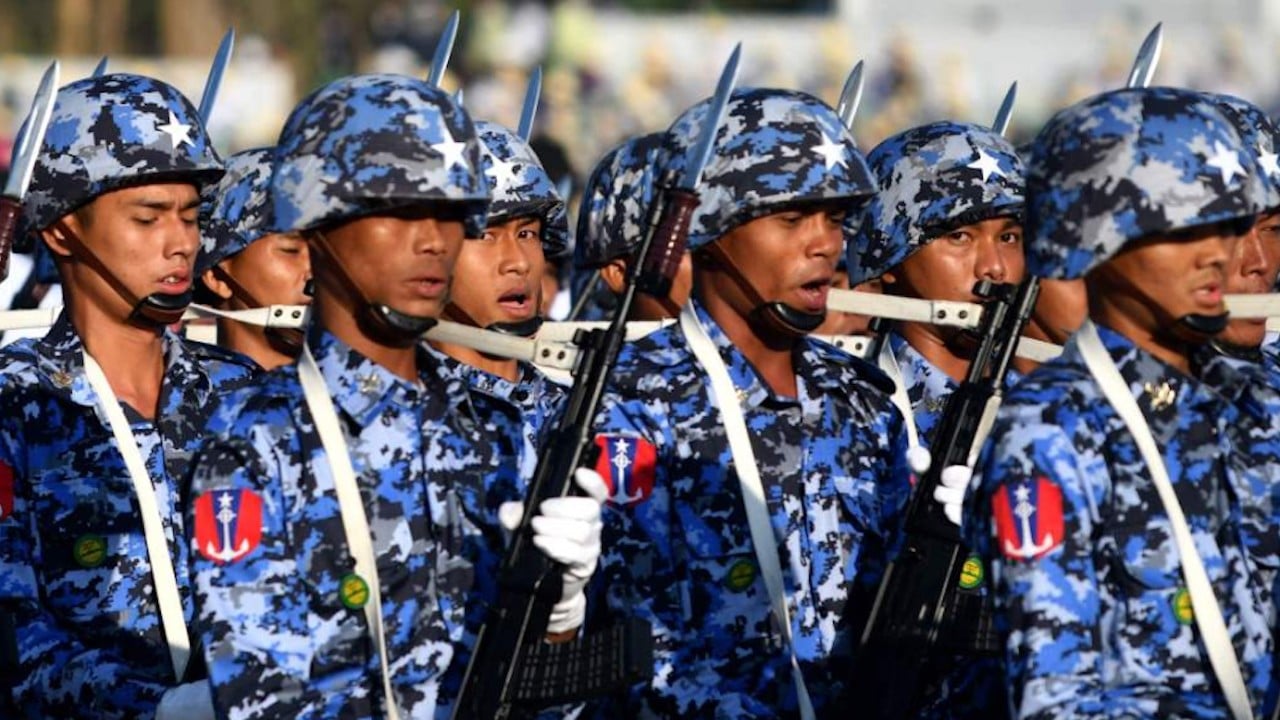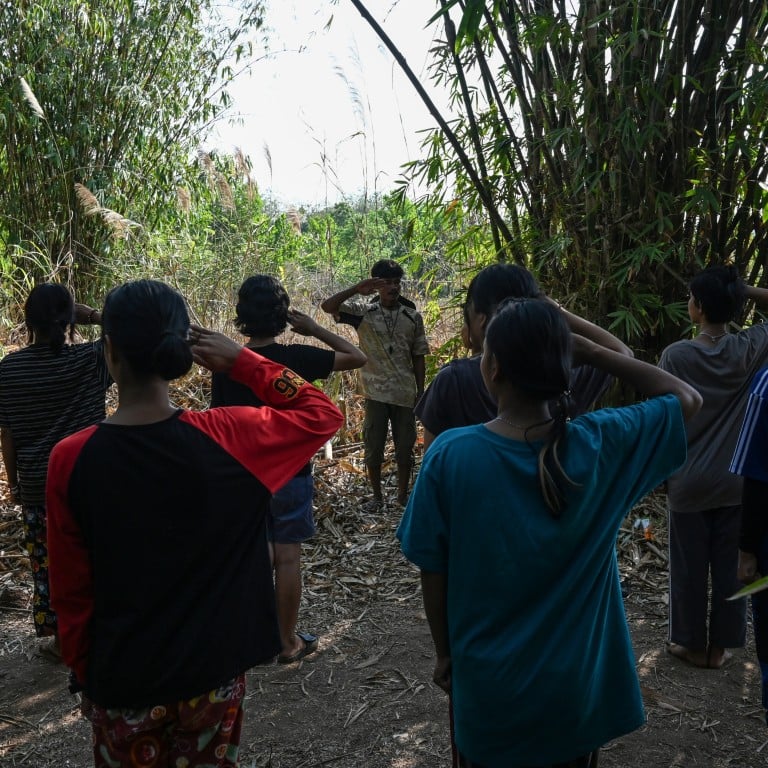
‘We have the momentum’: Myanmar’s youth take up arms against junta, fleeing conscription order
- Running from conscription, enraged by the military and boosted by a sudden scent of victory, Myanmar’s young people are increasingly joining the fight
- Thousands of young men and women have joined pro-democracy People’s Defence Forces, undergoing several weeks of training in the jungles in the south
Thousands have joined People’s Defence Forces (PDFs) since a junta decree in February made all men and women over 18 years of age eligible for conscription to fight their own people.
But taking on the junta puts the fighters’ families who remain at home in peril, so the new recruits give themselves noms de guerre – aliases for their time spent in military training and combat.
In Dawei, southeastern Myanmar, hundreds have joined the local PDF, which is welcoming them despite having too few guns.
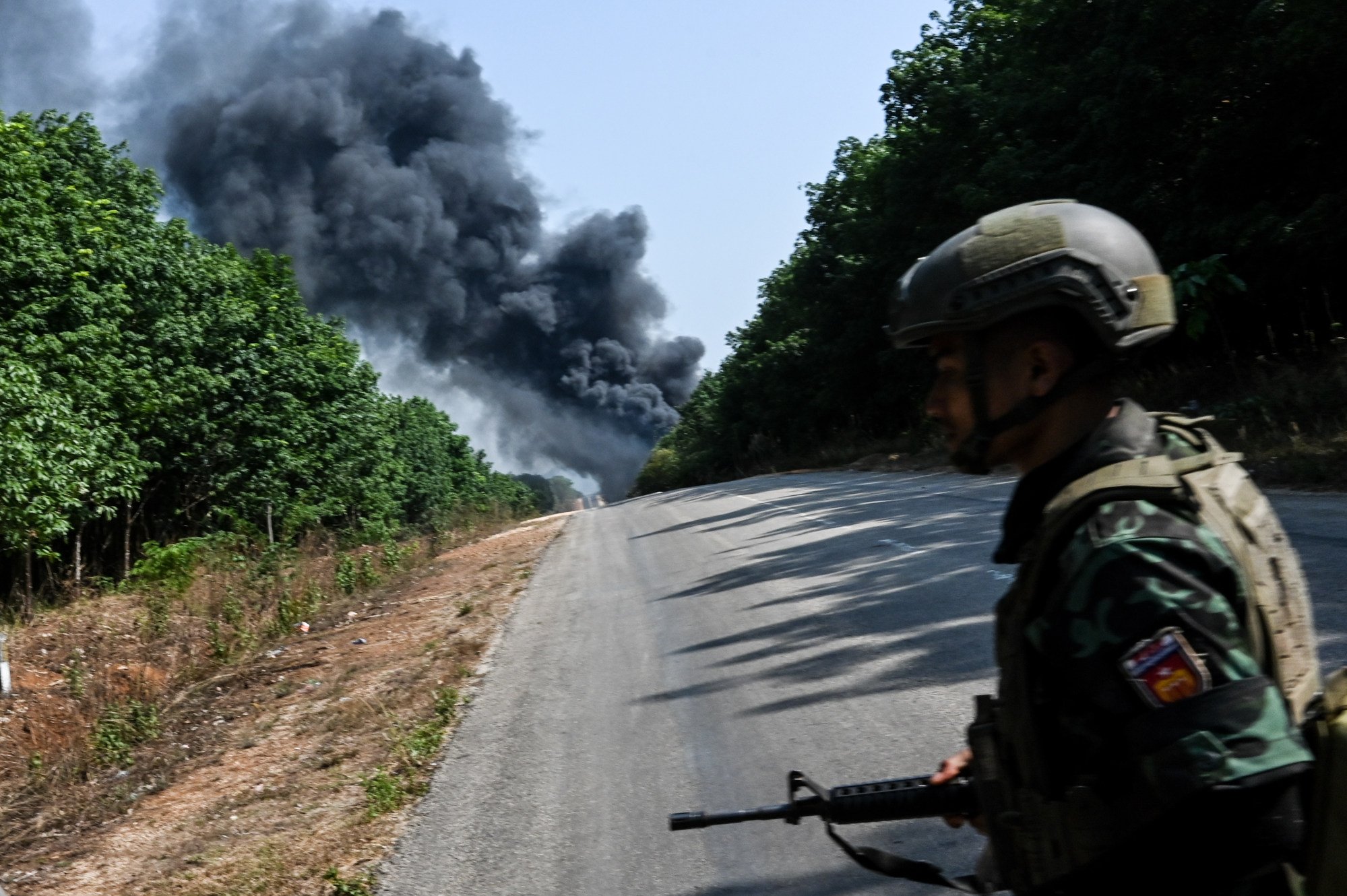
Brothers “P1” and “P2” received a letter in March at their home in Dawei ordering them to sign up and serve the junta, with their next steps simplified by the prospect of having to fight for a regime they loathe.
“We made contact with the PDF and left,” said P1, who is 26. “I refuse to violate or kill our people. I will only fight the military.”
The junta order says all men aged 18 to 35 and women aged 18 to 27 must serve for up to two years, putting roughly 14 million people – over a quarter of Myanmar’s population – in line for being called up.
The outlook is set to worsen for the military, after guerillas from the Karen ethnic minority on Thursday claimed to have captured the last of the army’s outposts in Myawaddy township in eastern Myanmar, virtually clearing the way for them to take over the town of Myawaddy, a major crossing point for trade with Thailand.
Running from conscription, enraged by a military that has sent the country spiralling into violent chaos and boosted by the sudden and unexpected scent of victory, Myanmar’s youth have chosen to either flee the country or gather in forests and join the fight.
Brothers P1 and P2 are part of the Dawna Battalion, made up of young men and women prodded towards jungle camps as their bright futures with city jobs were torn away from them.
In the jungle, they undergo a cursory six weeks of combat and fitness training, many wearing T-shirts, shorts and flip-flops, before spending another six weeks specialising in drone warfare, medicine, commando tactics or artillery as they await deployment.
While in the camps, their eyes anxiously watch overhead for air strikes from a junta that is losing territory on the ground but owns the skies.
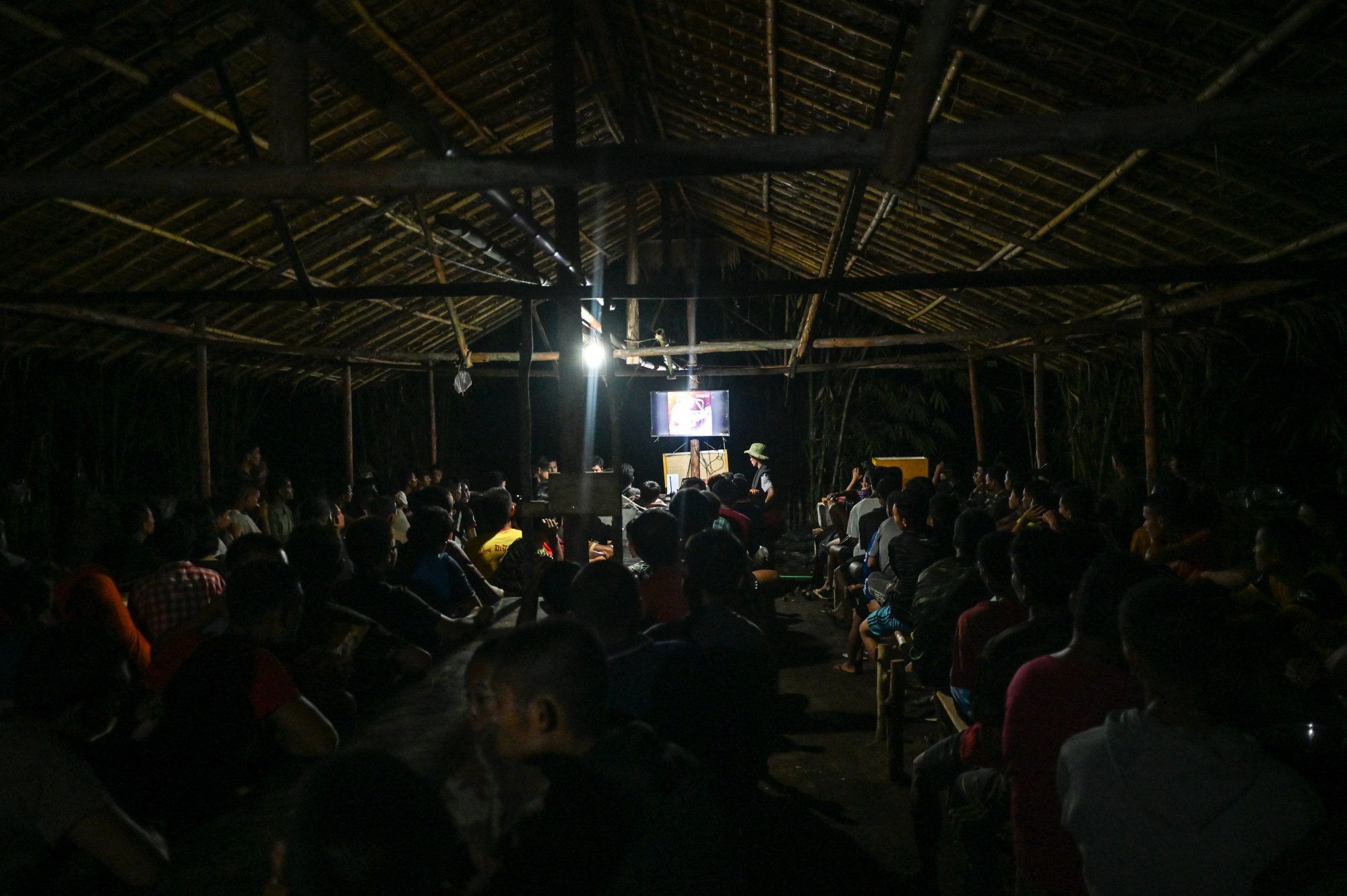
P2, aged 21, said the conscription decree had heaped untold “misery on us young people”, with their movements curtailed amid rampant extortion from junta cadres notorious for press-ganging youngsters into the military on the spot.
Thailand, which shares a long border with Myanmar, has detained hundreds of young people fleeing conscription, with an unknown number making it over the border by air or informal overland routes.
Once outside Myanmar, with their names marked as absent on conscription forms, these young people have little expectation of going home until the junta falls.
The brothers are training with a PDF calling itself the Southern Military Region of the Ministry of Defence, which says the junta’s conscription law has sent thousands of people their way.
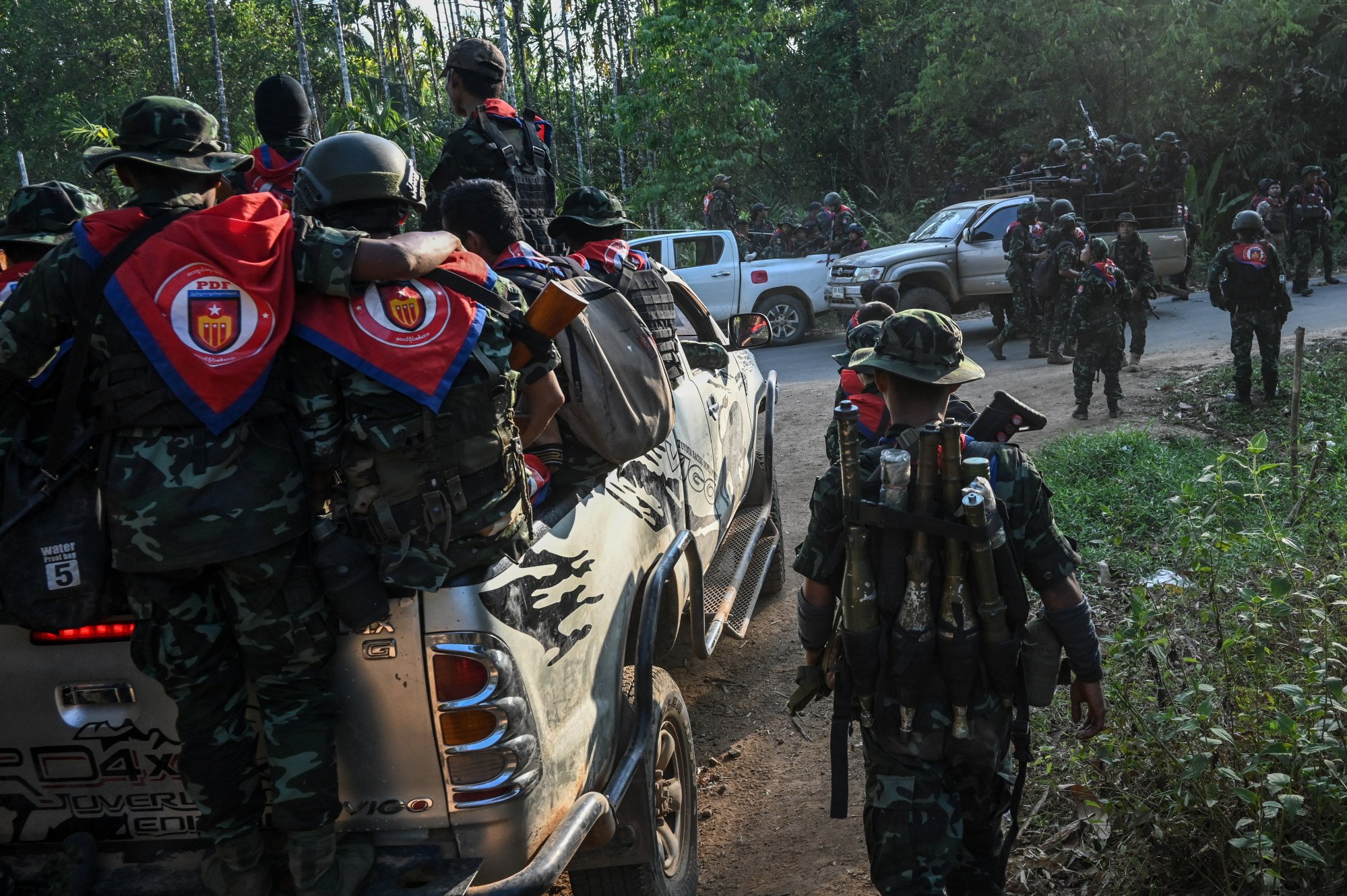
“The junta has destroyed an entire generation of young people by mandating military service,” said Jupiter, a second lieutenant in the force, also giving an alias.
“Conscription should only be for a country facing a direct threat of invasion or danger from foreign powers,” he told This Week in Asia, adding he was carefully checking all applications from newcomers “for spies and informers” in a sign of the anxiety that the conscription order has spread.
He reckons the prognosis is good for their rebellion, even if it will take time to defeat a junta that is much more heavily armed.
“We have the momentum, we have the human resources, but our challenge is weapons,” he said.
Fight or flight: Myanmar youth look to flee junta’s draft – or join armed rebels
Pro-democracy forces now hope to take out the military from Myanmar’s politics for good, and refuse to consider a role for the junta in any future peace settlement.
As the fighting across Myawaddy, with clashes near the Thai town of Mae Sot, drove people over the border to seek sanctuary, Bangkok’s Foreign Minister Parnpree Bahiddha-Nukara said the country was making preparations to “accommodate about 100,000 people in Thailand’s safe area temporarily”..
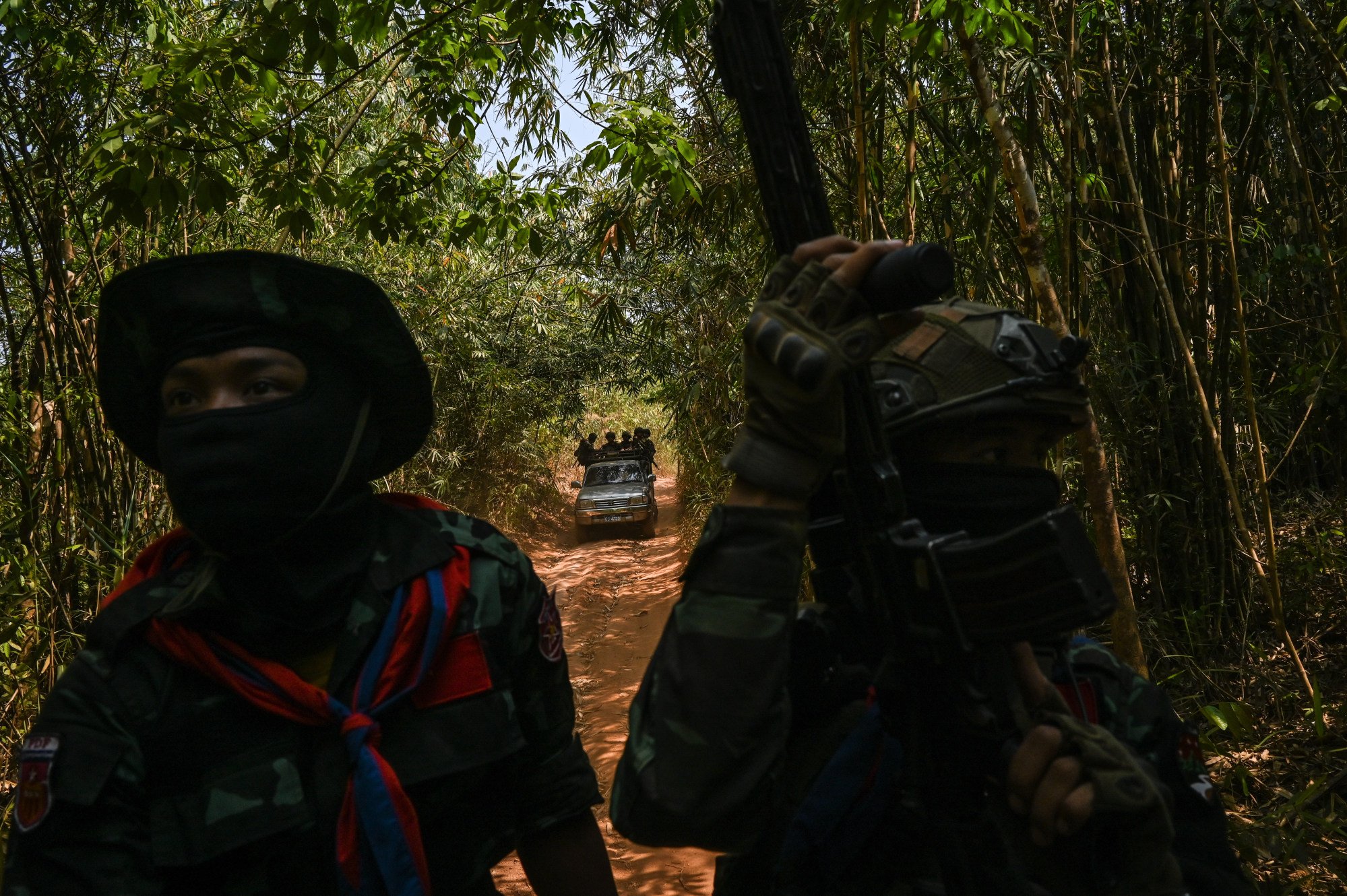
Thailand is not a signatory to the UN’s Refugee Convention and does not distinguish between refugees and other migrants. But it has hosted hundreds of thousands of displaced people from Myanmar – some for decades.
But the reclusive junta leadership, which lives in the heavily fortified capital of Naypyidaw, has shown few signs of changing its strategy of air strikes and coercion of civilians in its bid to hold onto power.
The UN rights council adopted a resolution this month condemning “horrific and systematic human rights violations” in Myanmar.
The junta’s foreign affairs ministry has called the UN statement “unfounded and one-sided” and “categorically rejected the resolution”.
Additional reporting by Associated Press

